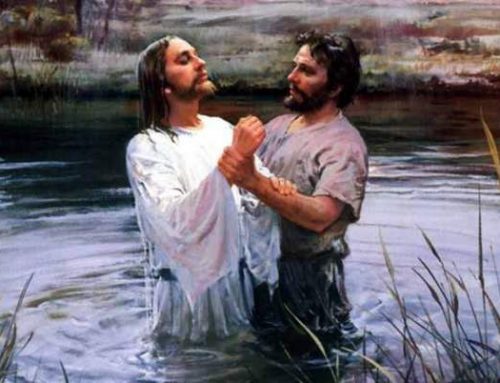Not only will Satan be destroyed, but we read also that “hell” itself is destroyed.
Revelation 20:14-15 says, “And death and hell were cast into the lake of fire. This is the second death. And whosoever was not found written in the book of life was cast into the lake of fire.” The revelator interprets the symbolism of the lake of fire by saying, “this is the second death.” The lake of fire is also mentioned in Revelation 20:10, “And the devil that deceived them was cast into the lake of fire and brimstone, where the beast and the false prophet are, and shall be tormented day and night for ever and ever.” Notice here that the “beast” and the “false prophet” are already in the lake of fire before the “devil” is thrown in.
We find that these symbolic entities (beast and false prophet) were put down and everlastingly destroyed earlier in Revelation. In Revelation 20:14, we see that death and hell (the grave) are also thrown into the lake of fire, thereby symbolically saying that even these conditions will be forever done away. This will be the fate of all systems and individuals that fail to come into harmony and obedience with the established kingdom of God.
This judgment is called “the second death,” because this will be a last and final judgment against all willful acts of sin. But why should it be called “second death”? Let us now discuss the Matthew 5:22 text you questioned.
In the Matthew text, Jesus speaks of the punishment of “hell fire.” Hell is an English word primarily translated from the Greek words hades and gehenna and from the Hebrew word sheol. Hades and sheol have the same meaning. Both words can properly be termed “the grave.” This destiny comes upon all men through the fall of Adam. We may call it the first death.
Because the Jews believed in a resurrection and recovery from this first condition, it was necessary for Jesus to emphasize the necessity of change of heart and development of character, else a raising from the dead would do them no good. He used the place gehenna, which was literally a valley used as a garbage dump outside Jerusalem, as an apt symbol.
The Jews knew that whatever was thrown into the gehenna valley never came out. Fire was kept going to burn up the garbage that was thrown in, and what did not burn was eaten by worms. Thus, we have the phrase “where the fire is unquenched, and the worm does not die.” (Mark 9:44, 46, 48) The Jews knew Jesus’s use of the word gehenna meant a condition of death from which there was no return—a second death, an everlasting death, a finality.
Satan will have no successor.
Additional Resources:
Christian Questions Podcast
Episode #1341: “What Did Jesus Mean When He Talked About Hellfire? (Hellfire Series Part I)”
Examining what Jesus meant by talking about hell and “unquenchable fire”
Episode #1174: “Did God Make Heaven and Hell Humanity’s Destiny? (Part I)”
Uncovering who goes to heaven and what happens to planet Earth
Preview Video
CQ Rewind Show Notes
Episode #1231: “What if I’m Not Good Enough for Heaven?”
Uncovering the destiny of humanity’s billions who don’t go to heaven
Preview Video
CQ Rewind Show Notes
For a comprehensive study on hell, download the free PDF: “The Truth About Hell”

















